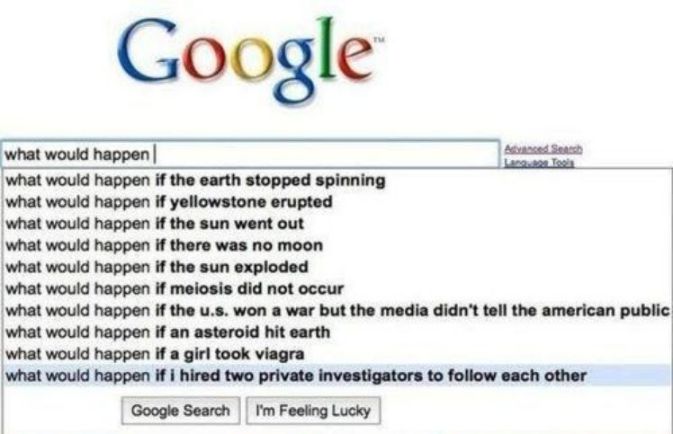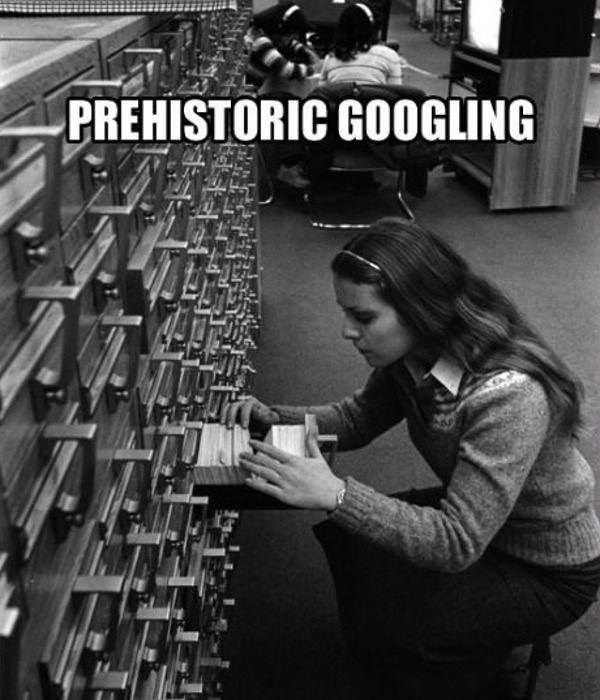Oh man, online searching.
Those of us who have been around the online block a few times remember the progress of search engines as the World Wide Web (what we all just refer to today as “the internet”) grew and grew. Gone are the days of the brick-sized CD-ROM set of the Encyclopedia Britannica, or the reliance on specific retailers for consumer review information. Books are reviewed by experts and dilettantes, and news is reported almost immediately by anyone nearby with a smartphone.
 It’s a lot.
It’s a lot.
And with the amount of information available to us online, comes the ability to sift through what is there to find what we need.
Thank goodness for the search engine.
Here are six things to know about online searching
Google isn’t always the best—but it usually is
When you’re starting an online search, the best place to start is that white screen with the rainbow letters. There are other search engines, like Yahoo, Bing, and Ask.com, but if you have any concept of what you’re looking for, the algorithms the good folks at Google have been writing for over a decade can probably help you find it. If you’re looking for deeper, authoritative information (*hint* like something you would read in a library research database in our E-Library, opens a new window), Google is only a place to start, but can probably get you to the topic you might be looking for.
Ask questions
Google is cool, and has adapted to people who just ask it questions.
 So if you have a question that you’re looking for a concrete answer to, you might be fine just typing that question into the search box. Those of us who took classes on keyword searching (don’t ask) might cringe in horror, but hey, if search engines are adapting more towards how people inquire, who are we to tell you not to do it?
So if you have a question that you’re looking for a concrete answer to, you might be fine just typing that question into the search box. Those of us who took classes on keyword searching (don’t ask) might cringe in horror, but hey, if search engines are adapting more towards how people inquire, who are we to tell you not to do it?
Advanced Search is your friend
Asking questions is cool, but Advanced Search is even cooler. There is so much you can do with Google Advanced Search and most people don’t even know it’s there. (Because Google...doesn’t want you to use it or something? I don’t know.)
The first thing you have to do is search for something. Once you’ve done that, you can use the Settings dropdown (again, ¯_(ツ)_/¯) to go to Advanced Search. The cool things you can limit or extend your search to there include usage rights for images, setting up safe search, domain types, sites in a particular language, and more.
It’s really useful, folks.
Keywords are key
I know I said that Google is getting better at adapting to your questions, but you still need the right words. Know your keywords. And if what you’re using isn’t giving you the results you want, use a thesaurus. You might search for “scifi and fantasy authors” looking for something in particular, but maybe “speculative fiction authors” will give you the answers you seek.
Spot the lie—no seriously, look for it
Search engine results are extensive for almost everything you could search for, but your first result is definitely not always going to be the best one. Sometimes it’s because it doesn’t have the breadth of information you seek.
But sometimes, it’s because you have hit upon something deliberately created to give you bad information. Looking at the name of a website and the actual URL that the article links to can give you some insight on where it comes from. If you’re looking for news information and the article links to a website called “dogfacekittyface.net”, it’s probably not going to give you legit info.
Know your resources. Or at least know how to tell if something is a bad resource.
Stephanie's list can help you with that, too:
The blurry line between fact and fiction in the news is as old as news itself but telling the difference has certainly become more difficult. These resources provide practical advice on critically evaluating information as well as historical and scholarly perspectives on the problem.
A resource for educators or the highly curious. From the website: "The flood of fake news, propaganda, rumors, and advertising that often masquerade as news has made it harder than ever to separate fact from fiction. News Literacy can help students of all ages recognize the differences between fact and rumor, news and advertising, news and opinion, and bias and fairness."
There is no shortage of fact checking websites but only this one is dedicated to verifying claims related to "key topics and political races in Arizona."
Know when to tap out
Sometimes you’re not going to find what you’re looking for. If you have made it to page seven of your Google search results with no prior information being useful, maybe you need to revisit the other things I’ve suggested—keywords, advanced search, resources—and see if it’s time to ask an expert.
Bonus: Ask a librarian
 We may seem modest, but librarians are expert information finders. If you’re having trouble, come in, call, or email, and maybe* we can help you out!
We may seem modest, but librarians are expert information finders. If you’re having trouble, come in, call, or email, and maybe* we can help you out!
*Note: sometimes, we hit impasses too. But we’ll try our darndest to get you where you need to be. Even if that’s with somebody not us. We’re cool like that.
*Want to know more? Check out the tutorials on DigitalLearn, opens a new window.

